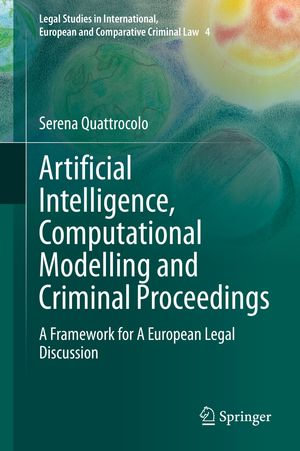
Artificial Intelligence, Computational Modelling and Criminal Proceedings
A Framework for A European Legal Discussion
eText | 27 August 2020
At a Glance
eText
$209.00
or
Instant online reading in your Booktopia eTextbook Library *
Read online on
Desktop
Tablet
Mobile
Not downloadable to your eReader or an app
Why choose an eTextbook?
Instant Access *
Purchase and read your book immediately
Read Aloud
Listen and follow along as Bookshelf reads to you
Study Tools
Built-in study tools like highlights and more
* eTextbooks are not downloadable to your eReader or an app and can be accessed via web browsers only. You must be connected to the internet and have no technical issues with your device or browser that could prevent the eTextbook from operating.
ISBN: 9783030524708
ISBN-10: 3030524701
Series: Legal Studies in International, European and Comparative Criminal Law : Book 4
Published: 27th August 2020
Format: ePUB
Language: English
Publisher: Springer Nature
Volume Number: 4
You Can Find This eBook In
This product is categorised by
- Non-FictionLawInternational LawPublic International LawInternational Criminal Law
- Non-FictionLawLaws of Specific JurisdictionsEntertainment & Media Law
- Non-FictionComputing & I.T.Information Technology General IssueLegal Aspects of IT
- Non-FictionLawLaws of Specific JurisdictionsCriminal Law & Procedure
- Non-FictionLawLaws of Specific JurisdictionsIT & Communications Law
- Non-FictionLawJurisprudence & General IssuesComparative Law
- Non-FictionComputing & I.T.Computer Science








![Strategies against Bullying : incl. Bonus - Deal with Cyber-Mobbing, Manipulation & Intriguing Colleagues! Guidlines to Communication & Conflict Resolution [Examples, Templates, Checklists] - Simone Janson](https://www.booktopia.com.au/covers/200/9783965960176/9512/strategies-against-bullying.jpg)















